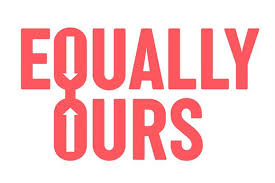There are many ways in which we wish to see the UK’s current human rights and equality settlement strengthened:
- There are a number of exemptions in the Equality Act 2010 that mean parts of it do not apply to religion or belief groups. We want to see many of these exemptions removed as they enable religious groups to discriminate including in the provision of public services.
- The Human Rights Act 1998 (HRA) applies to ‘public authorities’, but if a public service is contracted out to a religious group then the Act does not apply directly to that group. We want to see that changed.
- The UK is a signatory to the UN Convention on the Rights of the Child (UNCRC), but the Convention is not directly applicable to UK law, in the same way the European Convention on Human Rights (ECHR) is through the Human Rights Act. We think that children’s rights are not strong enough in domestic legislation so wish to see that changed: we want the UK Parliament to pass a Children’s Rights Act which transposes the UNCRC into UK law.
- Unlike the rest of the UK, Northern Ireland does not have a single equality act, and has significantly more holes in its equality legislation as a result. We support campaigns for such an Act. We also support proposals for a Northern Ireland ‘Bill of Rights’ to supplement the UK Human Rights Act 1998, taking into account the particular rights-based issues faced in Northern Ireland.
We are also concerned that human rights protections are being undermined in the UK. Provisions in the Illegal Migration Act have set a dangerous precedent by stripping universal human rights away from certain groups of people. We continue to guard against further erosion of human rights provision.
In depth
Defending our human rights
In its 2019 General Election Manifesto, the Conservative Party pledged to ‘update the Human Rights Act and administrative law’ if it won the election. Following this in July 2020, the UK Government launched a new panel to examine the case for reforming judicial review, in a move which leading lawyers and human rights organisations have warned could undermine citizens’ fundamental rights and constitutional protections.
The panel published its report in December 2021, recommending minimal change to the Human Rights Act. Nonetheless, the Government went ahead and published proposals, in a consultation, to ‘reform and replace the Human Rights Act’ with a British Bill of Rights. Many of the Government’s proposals went against the recommendations of the independent panel of experts. In May 2022, the Government announced its intention to bring forward legislation to reform the Human Rights Act in the Queen’s Speech and a British Bill of Rights, dubbed the Rights Removal Bill, was published in June 2022. The controversial Bill was shelved in September 2022, resurrected in November but then reportedly de-prioritised. In June 2023, the Government finally confirmed that the Bill was scrapped for good. However, we remain vigilant against ongoing threats to weaken the Human Rights Act’s provisions.
Humanists UK leads a coalition of over 250 charities, trades unions, and human rights organisations calling for protection of the Human Rights Act and judicial review. It is believed to be the largest ever UK coalition of groups to campaign on human rights.
Ending Equality Act exemptions
During the Equality Act 2010’s passage through Parliament, we worked closely with a range of organisations as well as our supporters in Parliament to have amendments made to the Equality Bill which sought to increase protection against discrimination for humanists and others, and to minimise the exceptions from the law granted to religious organisations. Unfortunately, however, the Equality Act contains a number of exceptions to allow religious organisations and individuals to discriminate against others in employment, in the provision of services and in other ways that we consider are unjust and unnecessary. We therefore campaign for many of these exemptions to be ended as part of our campaign for public service reform.
Human Rights Act and the meaning of ‘public authority’
The HRA is essentially a contract between the individual and the state, protecting the individual from abuses by the state, and enshrining certain ‘positive’ individual rights. In the context of public services, the HRA is of great importance for the protection of the rights of service users. However, only a narrow range of service providers are deemed by British courts to be public authorities, and it is only those with public authority status who are bound by the HRA. In practice, this means that ‘pure’ public authorities, such as government departments, the police, NHS Trusts, local authorities and so on are covered by the HRA – and so service users have recourse to legal action should their human rights be breached by their service provider. However, a feature of contemporary society is the increasing marketisation of public services, with many and varied services, from housing to after-school clubs, from social care services to welfare and employment services, being contracted out to private and third sector providers. This means that increasing numbers of service users are left at a lottery as to whether they are covered by the HRA or not. A particular feature of the Government’s policy of contracting out public services is the inclusion of religious – sometimes highly evangelical – organisations as service providers. We think there are real risks that religious service providers in particular may wish to infringe on the rights of service users. Amendments to the law are needed to ensure that all those organisations contracted to provide public services on behalf of the state are considered to be ‘public authorities’ in the context of the Human Rights Act 1998. You can read more about our campaign for public service reform. In addition, our 2007 report Quality and Equality: Human Rights, Public Services and Religious Organisations, discusses and sets out in detail our position on the contracting out of public services to religious organisations, and our recommendations for where the law should be amended to mitigate the problems we have identified.
Strengthening children’s rights
While the Human Rights Act 1998 directly incorporates the European Convention on Human Rights (EHRC) into UK domestic law, and the EHRC in practice covers the same rights as the Universal Declaration of Human Rights (UDHR), there is no similar incorporation of other international human rights treaties into UK law. Of all the other treaties, the UN Convention on the Rights of the Child (UNCRC) is widely regarded as the one that would do the most good in strengthening domestic human rights by direct incorporation. This has been specifically recommended by the UK Parliament’s Joint Committee on Human Rights, the Children’s Commissioners for England, Scotland, Wales, and Northern Ireland, and the UN Committee on the Rights of the Child, as well as being a step that has already been taken by many other countries already. Children’s rights are particularly relevant to our work as there is often a clash between religious discrimination against children by the state and children’s rights, for example through state-funded religious schools; or the fact that children do not have their own say over opting out from certain school areas (namely religious education, sex education and collective worship) until after they are sufficiently mature and intelligent enough to make their own fully informed decision on the matter (the rights rest with their parents). Recent years have seen great progress on this issue. In 2014, both the Welsh and Scottish Governments passed new laws requiring ministers to have regard to the UNCRC when exercising their functions, while a 2014 UK law requires the Children’s Commissioner for England to have regard to and monitor the implementation of the UNCRC. In light of the new law in Wales, in 2020 the Welsh Government was finally able to abolish the legal defence of ‘reasonable punishment’, banning all forms of physical violence by adults against children. But none of these moves go far enough, as they do not ensure that the rights contained within the UNCRC are directly enforceable.
What we’re doing
In March 2021, we defended the operation of the Human Rights Act 1998 in response to a consultation by the Government-established Independent Human Rights Act Review and warned against proposals to weaken the Human Rights Act, in response to a call for evidence by the Joint Committee on Human Rights into the Government’s Independent Human Rights Act Review. Government’s Independent Review of the Human Rights ActIn August 2020, we brought together over 155 human rights-focused organisations and 10 leading experts to launch a joint statement to oppose any attempt by the UK Government to restrict access to human rights laws, or to the law more generally through judicial review, which they warned could represent a devastating blow to everyone’s ability to guarantee their rights and freedoms against the state. This followed an announcement by the UK Government that it had launched a panel to review the scope of judicial review powers. This statement built upon an earlier letter, we coordinated with help from Index on Censorship in February 2020, which appeared in The Telegraph, calling on the Government to uphold freedom and justice and protect these vital mechanisms. We are continuing to add signatories to this statement, if you would like to add your organisation please contact us at campaigns@humanists.uk
Human rights and equalities

- We are the only religion or belief organisation that is a full member of Equally Ours the national coalition of groups interested in equality. We are also part of the British Institute of Human Rights’ Human Rights Alliance, which has been active in seeking to ensure that the UK Government’s proposals for a ‘British Bill of Rights’ do not weaken our human rights settlement.
![]()
- We worked with the Equality and Human Rights Commission on the statutory and non-statutory guidance that accompanies the Equality Act. This guidance aims to give guidance on the law itself, and be used as a guide for people to understand their rights in various circumstances, such as in employment or education. We also worked with it on its 2016 guidance on religion or belief in the workplace. Its findings published alongside the guidance included many complaining about ‘unwelcome “preaching” or proselytising, and the expression of views that were hurtful or derogatory towards other faiths and/or towards lesbian, gay, bisexual and transgender (LGBT) people’ – including in public service provision.
Children’s rights

- We are a member of the Children’s Rights Alliance for England (CRAE) and its Rights of the Child UK (ROCK), both coalitions of charities and children’s rights activists that call on the Government to make the UN Convention on the Rights of the Child (UNCRC) part of UK law. Working within these coalitions, we hope to be able to promote the importance and legitimacy of the human rights of all young people in the UK, whatever their circumstances. We have also regularly fed in to CRAE’s annual State of Children’s Rights in England reports.
![]()
- In 2015, we were part of the working group that produced the education section of the English civil society response to the UN Committee on the Rights of the Child’s periodic review of the UK’s implementation of the UNCRC. The resulting report made a number of recommendations around relationships and sex education, religious education, and school admissions, that if implemented would significantly advance out policy in these areas.
Get involved
Tell Humanists UK if your local authority contracts with religious organisations to provide public services in your area. You can support Humanists UK by becoming a member. That helps in itself, and you can help even more by supporting our campaigns in the ways suggested above. But campaigns also cost money – quite a lot of money – and we also need financial support. You can make a donation to Humanists UK .
